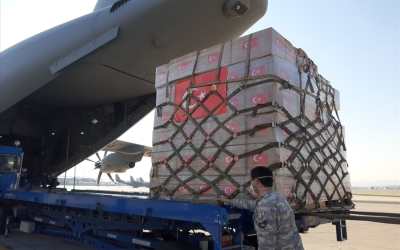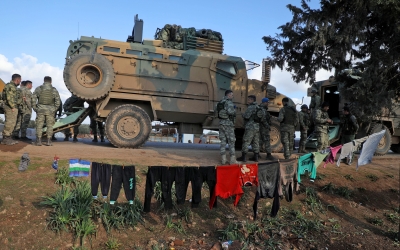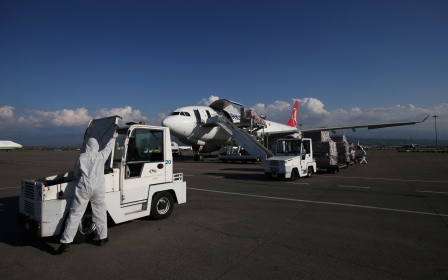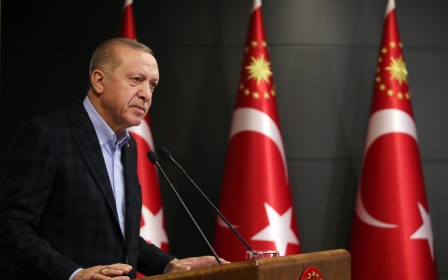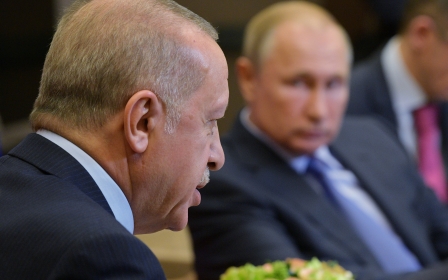Turkey courts Washington as disillusionment with Russia grows
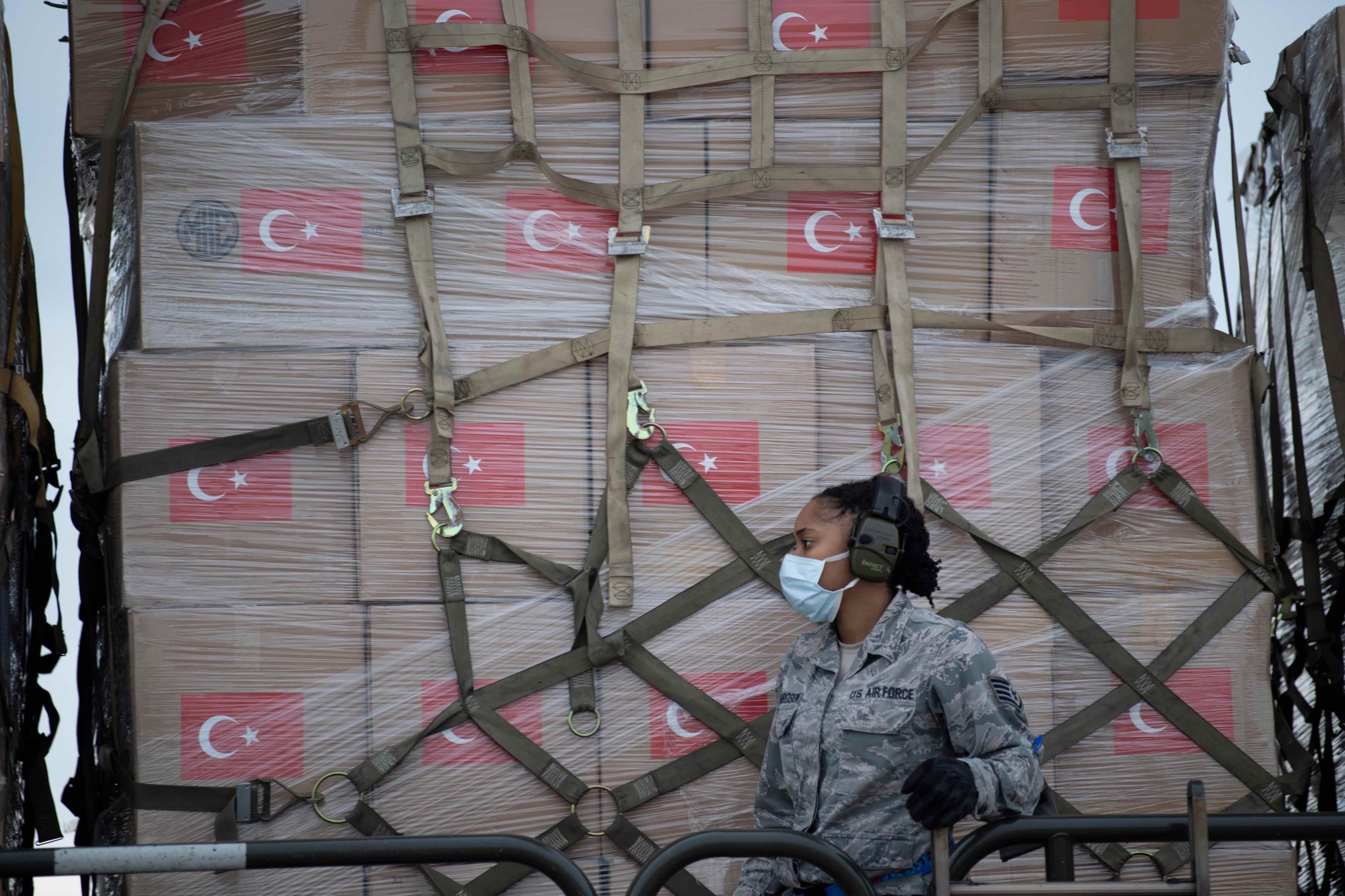
Crisis can create opportunity. For the Turkish government, that has meant a chance to repair damaged ties with its Nato ally the United States.
In recent weeks, as the coronavirus pandemic has swept across both countries and much of the world, Ankara has made several moves to build bridges with Washington in a carefully planned manner.
Turkey first signalled its intention to normalise the relationship in March, when it sold and delivered half a million coronavirus-testing kits to the US.
Then, earlier this month, Turkish officials announced that the country had postponed the activation of the highly contentious Russian-made S-400 missile systems for several months, due to the pandemic
That was a major shift for Ankara, because officials had long been insisting they would press along with their plans and deploy the systems to protect Turkish airspace, a move sanctionable under US law.
Washington views a Nato ally buying Russian arms as a security threat, and Ankara's purchase of the missile systems had already had major repercussions. Last year, the US ejected Turkey from the fifth-generation F-35 fighter jet programme and had suspended the delivery of already purchased aircraft.
Last week, President Recep Tayyip Erdogan issued a special exemption to supply ventilator parts for the American company Ford, which intends to produce thousands of respirators in the coming months.
Meanwhile, on Tuesday, Turkey donated half a million protective masks and other medical equipment to Washington - as the US struggled to deal with the world's largest coronavirus outbreak - under the pretext of showing solidarity with an ally.
Pressing reset
Some observers in Ankara have been surprised by these moves, especially Erdogan’s decision to provide the medical equipment as aid rather than selling them, as initially agreed.
Erdogan himself revealed the intentions behind these steps in a letter addressed to Donald Trump, which was sent to Washington aboard the Turkish cargo plane carrying the aid on Tuesday.
He said the “positive atmosphere” created by the cooperation against Covid-19 would help both countries to “advance” Turkish-American relations.
“Recent developments in our region, particularly in Syria and Libya, have once again demonstrated the importance of upholding the Turkish-US alliance and cooperation at full strength,” Erdogan wrote.
One Turkish official, speaking anonymously, told Middle East Eye that Ankara’s calculation has been changing since its military clashed with the Syrian government in the country's Iblib province, where nearly 60 Turkish soldiers had been killed in February.
'Recent developments in our region, particularly in Syria and Libya, have once again demonstrated the importance of upholding the Turkish-US alliance'
- Recep Tayyip Erdogan
It was then, the official said, that Turkey began to doubt its partnership in Syria with Russia, President Bashar al-Assad's chief ally.
“The Russians, instead of ending Syrian attacks to the area guarded by Turkish observation stations, whose safety was guaranteed under the Astana deal, asked us to withdraw and cede the territory to Damascus,” the source said.
“They even asked us to leave the Afrin region, saying that since Turkey had cleaned the area from the YPG there is no need for us to be there.”
The feeling in Ankara is that Russia either aided or turned a blind eye to a Syrian air force attack against Turkish forces in February, which killed 33 soldiers.
Several tense phone conversations between Erdogan and Russian President Vladimir Putin subsequently revealed that Moscow was more interested in opening up the M5 highway that connect Damascus to Aleppo and the nearby M4 for Syrian government use than the fate of millions of refugees trapped near the Turkish border.
Ankara, at the time, was deeply concerned by the possibility of hundreds of thousands of refugees crossing into Turkey. A million Syrians had been displaced towards the border by a Syrian government assault in Idlib, joining many more already residing in Idlib's north.
Both leaders tentatively agreed on a ceasefire at the beginning of March, establishing a joint patrol on the M4 highway that cuts through Idlib's south. Yet the deal didn’t address the broader problems, such as the Turkish military posts that had been encircled by Assad's forces, or the political track, which appears to be completely stalled.
Turkish-Russian cooperation in Libya also seems to have broken down, since a January summit in Moscow where Putin failed to convince his client Khalifa Haftar to abide by a ceasefire.
In speeches last month, Erdogan conveyed his hope that Putin would put an end to the activities of Russian mercenaries the Wagner Group in Libya, where they are backing Haftar in his fight against Turkey's ally, the Government of National Accord.
Yet several Syrian sources suggested that Russian private companies, as of April, were still hurrying Syrians from Damascus-controlled territory to Libya to back Haftar’s army. Turkey, too, has deployed Syrian fighters to Libya to battle Haftar.
Out of options
Some American officials, such as James Jeffrey, special envoy to the coalition battling the Islamic State group, wanted to use the situation to their advantage by courting Ankara and publicly calling Turkish soldiers killed in Syria “martyrs”.
One American official source told MEE earlier this year that Washington was hopeful of reviving ties and focusing on joint cooperation against regional threats stemming from Iran.
The partial withdrawal of American forces from north-eastern Syria last year removed one of the major irritants in bilateral relations, since it minimised the US cooperation with the YPG militia, which Ankara considers a terrorist group.
“Turkey doesn’t have many options other than working with Washington,” one Turkish source close to the government said.
Ankara in February asked the US government to conduct aerial patrols in Turkish airspace bordering Idlib and temporarily deploy Patriot missile systems. US officials responded to the request by proposing to share intelligence.
With rapidly evaporating foreign reserves, Turkey is also in need of cash to shore up the lira amid the coronavirus crisis.
Erdogan has held talks with Trump about securing a swap line, essentially accepting foreign currencies in return for dollars from the US Federal Reserve, which is yet to make a decision on the issue.
Some estimates suggest Turkey's economy will contract 5 percent this year, as dwindling tourism revenues put the Turkish central bank in a bind. On top of that, billions of dollars' worth of foreign loans are due to mature later this year.
One major point of contention remains the activation of S-400s. Turkish officials maintain that, even though they have postponed the process, they will eventually activate the systems.
Foreign Minister Mevlut Cavusoglu this month reiterated a Turkish request to create a study group that can seek ways for the S-400s to be used in conjunction with Nato arms systems.
US Congress has passed several pieces of legislation containing sanctions against Turkey, as a response to its S-400 purchase and Syria operation against the YPG.
However, one particular law specifically mandates the Trump administration to punish Turkey over the Russian-made system: the Countering America's Adversaries Through Sanctions Act (Caatsa).
“We continue to stress at the highest levels that the S-400 transaction is the subject of ongoing Caatsa sanctions deliberations and it remains a major obstacle in the bilateral relationship and at Nato," US State Department spokeswoman Morgan Ortagus said in a statement in response to Cavusoglu's suggestion.
"We are confident that President Erdogan and his senior officials understand our position.”
This article is available in French on Middle East Eye French edition.
Middle East Eye delivers independent and unrivalled coverage and analysis of the Middle East, North Africa and beyond. To learn more about republishing this content and the associated fees, please fill out this form. More about MEE can be found here.


